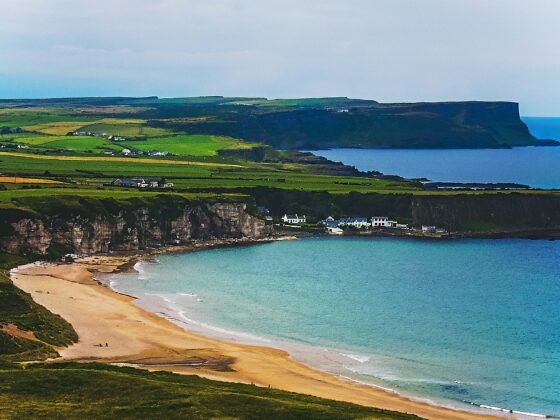
It’s quite natural for outdoor lovers to start considering mountain camping. Fair enough, as it is the best way to experience the most scenic peaks up close, and delight in serenity and plenty of fresh air. However, mountain camping can be tricky for a beginner unless you’re well-prepared. That’s why we are here for you to share 10 things you need to know before you hit the road.
1. Elaborate on your camping checklist
Figure out what to pack based on how much room you have, your means of transport, and the amount of time you’ll be gone. If you’re going to hike to the campsite, be careful about the weight and volume of what you’re carrying. It’s no fun carrying a heavy pack up a mountain. If it’s your first camping trip in the mountains, it’s a good idea to narrow down your checklist to the absolute essentials and leave the fancy extras for when you go car camping.
2. Pick the right tent
A reliable tent is your number one gear for mountain camping. Even throughout the summer, temperatures can dramatically drop in the mountains, so you’ll need a backcountry shelter that will keep you warm and protect against the elements. That’s why heavy-duty all weather tents are the best choice for camping in the mountains, no matter the season.
3. Know where to put up your tent
While choosing a spot to pitch your tent, stick to this rule of thumb: always set up on the slope’s leeward side. This way, your wildlife shelter will be less exposed to high winds and precipitation, leaving you less vulnerable to the whims of Mother Nature. Here are some helpful tips from National Geographic on how to choose the best spot.
4. Learn about the environment and potential hazards
Before you set off for your outdoor adventure, make sure you know the environment you’re traveling to, and the possible dangers you might face there. Also, learn about altitude sickness and its prevention, and what to do in a thunderstorm. Plus, successful camping in the mountains means understanding bears and how to keep your food away from them.
5. Plan your meals
While planning your high-altitude meals, take into account the length of your stay, and opt for shelf-stable, easy-to-carry stuff. Remember that mountain hiking will sap a lot of your energy, so pack highly nutritious food. Here some suggestions:
- ready-to-eat cereal
- canned fish/poultry/meat
- whole grain pasta
- couscous
- canned beans
- peanut butter
- rice
- pancake mix
- dried soups
Finally, stock up on snacks to relieve your hunger between meals. Consider packing nuts, seeds, apples, bananas, oranges, energy bars, or dried fruit.
6. Remember to stay hydrated
To stay healthy in unusually high altitudes, you’ll need to drink plenty of water, so make sure you can bring or access clean drinking water during your hike. Plan for about two cups of fluid for every hour of hiking. Apart from staying hydrated, it’s imperative to keep your electrolytes balanced. Here’s a simple but very essential tip: bring bananas that are rich in potassium which is great for your electrolyte balance. Water and bananas will help you avoid muscle cramps and headaches that are very likely to occur in high altitudes.
7. Pack the right clothes
As we have already mentioned, the weather in the mountains can be very tricky due to the radical changes in temperature, so you won’t get away with just a T-shirt and shorts in summer. For day hikes, prepare underwear, shorts, a T-shirt, hiking socks and trail running shoes. When the temperature starts to drop at sunset, use a long-sleeve shirt, pants and a rain jacket to retain body heat. Finally, don’t forget to bring fleece base layers and extra socks to slip in for bedtime, even if you’re going to sleep in a sleeping bag. You can get all these items and more at this cool army surplus store online.
8. Don’t forget sunscreen and sunglasses
Get this: sunlight is more intense in mountainous areas, and you can easily get a sunburn unless you use any protection. And yes, it’s not only about the summertime: no matter the season, bring along some sunscreen when you go camping in the mountains. Apply it generously on the exposed areas every day, particularly your face and neck. Also, remember to take your sunglasses to protect your eyes from the harmful UV rays.
9. Stay safe
Safety is no joke, especially when you’re camping in a remote area. So before you set off, prepare a well-stocked first-aid kit. Make sure your first-aid kit includes blister treatment, bandages, tape, antibiotic ointment, gauze pads, anti-diarrhea medications, headache remedies, fever reducers, antihistamines and any prescriptions.
Even if you have a GPS device, bring a map and a compass to serve you as backup means of navigation. Getting lost in the mountains isn’t fun, so never go on a hike alone. It’s also a good idea to pack a whistle and a mirror to help you send signals in case of an emergency.
10. Get a headlamp
When you are trail running at dusk, setting up your tent at night, or looking for something in your backpack, you can’t beat the convenience that comes with hands-free lighting offered by a headlamp.
To Wrap It Up
For many campers, camping in the mountains is part of their bucket list. However, this type of camping calls for some thorough pre-planning and extra preparations. We hope our advice will help you have an enjoyable and trouble-free camping experience.












